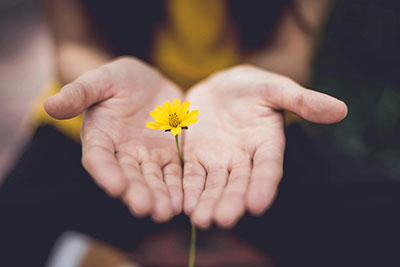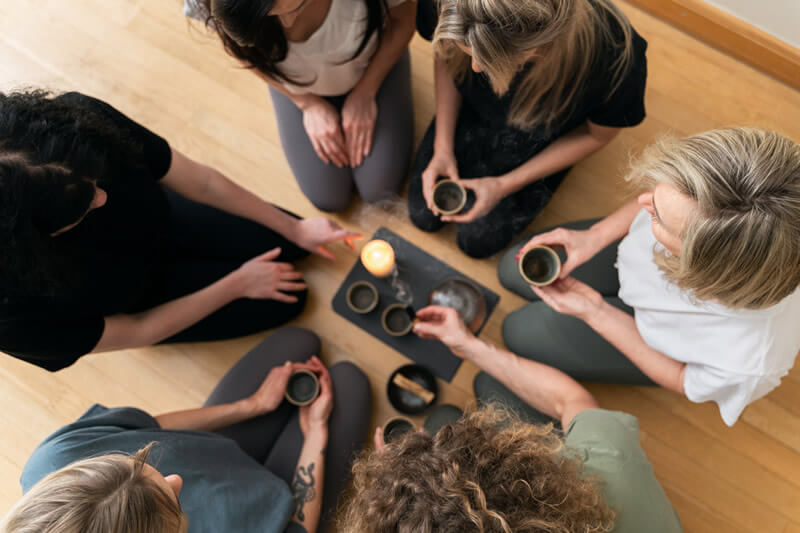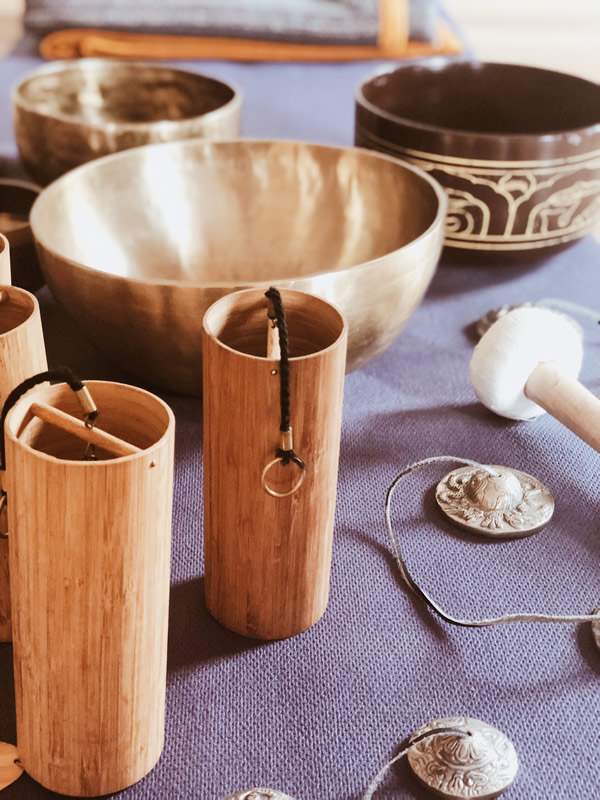Authenticity Explained: How Western and Eastern Cultures Define “Being True to Yourself”

What does it mean to “be authentic”? On the surface, it appears simple: staying true to yourself. Yet, this concept shifts when viewed through the lenses of different cultures. Western ideologies often emphasize individuality, while Eastern traditions connect authenticity with relationships and harmony. Exploring these perspectives reveals how personal and cultural values shape authenticity today. Understanding these differences not only broadens our worldview but also provides deeper insight into what it means to live authentically.
Defining Authenticity: A Foundation for Comparison
Authenticity often feels like a journey inward, but its expression takes varied forms across cultures. To understand how the idea of “being true to yourself” differs between Western and Eastern contexts, it’s vital to first identify the shared and culturally specific elements of this concept.
Universal Aspects of Authenticity
At its core, authenticity centers on aligning actions with one’s inner values and beliefs.
This universal principle cuts across cultures, societies, and timeframes. Core traits such
as self-awareness, honesty, and consistency echo in nearly all discussions around authenticity.

Self-awareness helps individuals recognize their values, emotions, and thought patterns. Without it, staying “true to oneself” can feel like an unreachable concept.

Introspection plays a key role, fostering moments to reflect on intentions and choices. Reflection serves as the mirror that reveals our authentic self.
From a psychological perspective, researchers have identified authenticity as the internal harmony between who you are, how you feel, and what you express outwardly. This study explores authenticity as a personal and cultural trait, evident across varying societal contexts.
Cultural Specificity in Understanding Authenticity
While the foundational elements of authenticity are universal, how it is understood and valued can differ vastly across cultural lines. Western societies often view authenticity as individuality—being independent, bold, and expressive. By contrast, many Eastern frameworks tie authenticity to relationships and social harmony.
Societal values, for instance, heavily influence authenticity. In cultures driven by individualism, such as the United States, expressing unique opinions or standing out is celebrated as authentic. On the other hand, collectivist cultures, like Japan or South Korea, might define authenticity through connectedness, humility, and contributions to community welfare.
Cultural narratives play a significant part, too. For example, in Western cultures, the “hero’s journey” trope promotes the idea of self-discovery as a path to becoming authentic. Compare that to many Eastern philosophies, where personal identity is deeply tied to fulfilling roles within a family or society. This doesn’t make one approach better than the other—it highlights diversity in how we view the self.
To dive deeper into these distinctions, consider this perspective from Berkeley Executive Education, where authenticity is described not just as self-expression, but as a balance with external societal values.
Authenticity remains a strong yet fluid concept shaped by our inner world and external realities. Uncovering its facets helps us better appreciate both our own authenticity and the ways others live authentically within their frameworks.
Authenticity in Western Culture
In Western culture, authenticity is an evolving concept shaped by philosophical, societal, and cultural shifts. It emphasizes the profound connection between personal truth and how it interacts with freedoms rooted in individuality. Let’s explore its history, defining traits, and modern applications.
Historical Context: The Evolution of Authenticity in Western Traditions
The journey of authenticity in the West can be traced to some of the most influential thinkers in philosophy. Jean-Jacques Rousseau, a precursor to Romanticism, argued that humanity’s true nature was corrupted by society. He believed individuals should reconnect with their innate emotions and instincts to live authentically. His works like The Social Contract and Confessions championed the idea of personal sincerity over societal conformity.
Later, Friedrich Nietzsche took this idea further. He rejected societal and religious norms in favor of creating one’s own values. Nietzsche introduced concepts such as the “Übermensch” (Overman), advocating self-overcoming and defying external scripts. His philosophy aligned authenticity with bold, personal responsibility.
By challenging traditional structures, both philosophers laid the foundation for a Western understanding of authenticity rooted in freedom and self-definition.

Key Characteristics in the Western View
At the heart of Western authenticity lies individualism and self-expression. Here’s what defines this perspective:
- Individualism: This stresses the significance of personal autonomy. Society often values making choices that reflect one’s beliefs, independent of collective expectations. This has been essential to Western ideologies, as argued in resources like this analysis.
- Self-expression: Authenticity requires openly expressing one’s identity, even when it deviates from societal norms. Whether through art, speech, or actions, Western culture champions unique voices and perspectives. More on this connection can be found here.
- Freedom of Choice: Western values highly protect individual freedoms, ensuring people can choose paths most aligned with their values.
However, authenticity within the Western view isn’t without challenges. Personal freedom sometimes collides with societal expectations or economic pressures, which can limit expressions of true individuality.
Examples in Modern Western Society
Evidence of authenticity thrives across many aspects of Western life:
- Media & Pop Culture: From movies to social media, themes of “finding your true self” dominate. Disney films like Moana and Frozen celebrate breaking away from societal conventions to follow personal truths.
- Art & Literature: Artists often use their creations to express vulnerability. Authenticity here translates to raw, emotional storytelling.
- Self-Identity Movements: Movements around gender identity and mental health highlight how society evolves to support authentic self-expression.
Still, modern barriers exist. Social media invites curated authenticity, where what’s shared may not align with reality. Societal demands for success and perfection also challenge one’s ability to live genuinely. As people navigate these complexities, Western culture continues to evaluate what it means to be truly authentic.
Authenticity in Eastern Culture
Authenticity in Eastern culture brings a sense of balance and a deep connection to community. Unlike the Western focus on individuality, Eastern traditions often view authenticity as living harmoniously within the collective. This perspective intertwines personal values with broader social and philosophical frameworks.
Historical Context: Authenticity in Confucianism, Taoism, and Buddhism
Eastern philosophies have long explored the concept of authenticity, particularly in Confucianism, Taoism, and Buddhism. These “three teachings” emphasize the fluid relationship between the self and the surrounding world.
Confucianism sees authenticity as fulfilling roles within family and society. It underscores filial piety, or respect for one’s elders, as an essential virtue. By adhering to moral duties and practicing ethical behaviors, individuals express their true character in alignment with communal well-being.
Taoism shifts the focus to living in harmony with the Tao, or “the Way.” Authenticity in Taoism means flowing naturally with life, rather than resisting it. Taoism rejects rigid structures, encouraging spontaneity and humility. For a deeper understa
Buddhism, meanwhile, examines authenticity through inner awareness. Practices like meditation help individuals transcend ego and understand interconnectedness. Authenticity arises from understanding one’s role in the broader tapestry of life.

Key Characteristics in the Eastern View
Eastern authenticity places great importance on harmony, balance, and collective well-being. Here are some defining traits:
- Harmony with Others: Being authentic means respecting and maintaining relationships, whether with family, community, or nature.
- Balancing Roles: Many Eastern cultures prioritize fulfilling social roles, such as being a good parent, child, or friend, as an expression of self.
- Interdependence: The Eastern view often highlights our interconnectedness. There’s less focus on “I” and more on “we.”
This perspective values authenticity as a shared experience rather than an isolated personal journey.
Examples in Modern Eastern Society
In many Eastern societies, authenticity manifests through family, rituals, and adherence to social roles.
- Family Life: Eastern cultures often emphasize filial piety. Respect and duty to one’s parents are expressions of authenticity in action. Explore how family shapes authenticity here.
- Traditions and Rituals: Practices like Chinese New Year or Japanese tea ceremonies provide modern avenues for people to express collective authenticity. Rituals connect individuals to their past, reinforcing a shared identity.
- Social Roles: In Japan, balancing personal desires with obligations to coworkers or family showcases authenticity as responsibility.
However, modern challenges exist. Globalization has introduced Western ideals of individualism, often clashing with traditional Eastern values. Younger generations, exposed to global media, express new forms of authenticity that blend tradition with modernity. This shift raises questions: How does one stay true to both personal and cultural identities in an increasingly connected world?
Understanding these aspects of Eastern authenticity offers insight into a more holistic version of being true to oneself—one that doesn’t isolate, but instead connects.

Comparing Eastern and Western Perspectives on Authenticity
When examining authenticity, Eastern and Western philosophies offer distinct yet overlapping approaches. Both prioritize understanding the self, yet their paths diverge in reflecting individuality versus interconnectedness. The following sections explore the nuances in these perspectives, their shared ideals, and the influence of global interconnectedness.
Key Similarities: Shared Ideals of Self-Discovery and Personal Growth
While Eastern and Western philosophies take different routes, they share common ground in valuing self-awareness and growth. Both cultures see authenticity as a process of aligning actions with one’s internal values.
- Introspection as a Tool: Both perspectives emphasize reflection to identify what truly matters. Whether through meditation, journaling, or therapy, the goal is to know oneself better.
- Valuing Inner Truths: Each approach views understanding and expressing core beliefs as essential to living authentically.
- Growth Through Self-Awareness: Personal development is seen as a lifelong endeavor in both traditions. Mistakes aren’t failures, but steps toward authenticity.
In both frameworks, authenticity is a journey of becoming rather than being. The individual’s experiences and relationships provide insights into their true self.
Core Differences: Individual and Interconnected Self
The divergence between Eastern and Western views lies in how they balance personal identity with societal expectations.
- Western Focus on the Individual:
- Eastern Emphasis on Interconnectedness:
- Harmony Over Individual Goals: Authenticity in this context often requires balancing personal desires with maintaining communal well-being.
- Role Fulfillment as Authenticity: Whether as a parent, friend, or coworker, fulfilling roles becomes a key part of personal truth.
- Balancing Acts:
Impact of Globalization: Emergence of Hybrid Perspectives
Globalization has woven cultures together in unprecedented ways, reshaping how authenticity is interpreted and expressed.
- Cultural Fusion:
- Modern Expressions:
- Challenges to Cultural Identity:
As societies grow increasingly interconnected, authenticity is no longer constrained by geography. Instead, it’s shaped by a blend of cultural narratives, modern trends, and personal choices.
Practical Applications of Authenticity Across Cultures

Authenticity is more than a personal mindset—it shapes how people grow, connect, and work. Across cultures, authenticity takes on unique forms, influenced by societal norms and personal experiences. For those looking to apply authenticity in their lives, recognizing its different expressions can lead to better self-awareness, stronger relationships, and greater satisfaction.
Personal Development: Practices for Daily Authenticity
Living authentically starts with aligning your actions with your core values. Across cultures, the practice may vary, but the foundation remains the same—
being clear about what genuinely matters to you.
To nurture authenticity in your daily life, consider these practices:
- Evaluate Your Values: Examine what drives you. What principles are non-negotiable in your life? Writing them down can make them clearer.
- Commit to Your Beliefs: Once you know your values, align your choices and actions with them. Whether it’s saying no to something that doesn’t feel right or pursuing something challenging that resonates with your inner truth, prioritize living in consistency with your beliefs.
- Practice Self-Reflection: Create moments to reflect daily. Meditation, journaling, or quiet walks can help you evaluate whether your actions align with your values.
- Adapt Culturally: In collectivist cultures, expressing authenticity might mean prioritizing family or community well-being. In individualist societies, it might highlight personal independence. Balance your cultural context with your personal truth.
Embracing personal authenticity leads to inner peace and confidence. It fosters growth and helps you face challenges with clarity about who you are.

Authenticity in Relationships: Maintaining Individuality While Connecting
Relationships thrive when people bring their true selves to the table while respecting those around them. The way authenticity influences relationships depends on cultural values—what’s authentic in one culture might differ in another.
Here’s how to build meaningful yet authentic connections:
- Communicate Openly: Share your true feelings and thoughts respectfully. Honesty builds trust, but it must align with cultural norms to avoid misunderstandings.
- Respect Differences: Authenticity doesn’t mean being rigid. Recognize where others are coming from and adjust without compromising your values.
- Balance Individuality and Connection: Cultures like Japan emphasize self-expression within group harmony. In more individualistic cultures like the U.S., showing individuality may be celebrated more openly. Striking the right balance creates meaningful bonds.
Cultural differences also shape relationship dynamics. For example, in many Eastern cultures, being authentic involves fulfilling family roles, while in Western cultures, it’s more about self-expression. Explore these differences further here.
Authentic relationships require intentionality and effort. Balancing personal truth with sensitivity to others makes connections sustainable and emotionally fulfilling.
Professional and Social Contexts: Authenticity in the Workplace
Workplaces today are increasingly diverse, requiring people to navigate authenticity in new and intentional ways. But how do you strike the balance between remaining true to yourself and fitting into a company culture or work environment?
Here are some considerations for authenticity in professional settings:
- Be Tactfully Honest: Share your thoughts and ideas clearly, but in ways that align with the team’s values. For instance, in hierarchical cultures, authenticity might mean respectfully addressing your manager rather than bypassing channels.
- Build Inclusive Relationships: Workplace authenticity involves creating genuine connections with colleagues. Respect cultural sensitivities while remaining sincere.
- Adapt Without Compromising: In global workplaces, adjust communication to reflect cultural norms. For example, while eye contact signals confidence in Western workspaces, it might be seen as confrontational in some Eastern contexts.
Social authenticity is just as important. In multicultural settings, remaining open-minded while standing firm in your core beliefs helps you form genuine bonds. Authenticity should never mean imposing your identity on others but instead finding common ground.
Authenticity transforms workplaces and communities by fostering trust, collaboration, and deeper connections. These principles help you navigate professional and social scenarios without losing yourself.
Across cultures, authenticity may look different, but its impact remains universal. From personal growth to fostering relationships and thriving at work, authenticity is a constant bridge between values and actions. It’s about finding the balance between who we are, how we connect, and the world around us.
FAQs About Authenticity in Western and Eastern Cultures
Authenticity can mean different things depending on where you call home. The West often ties authenticity to individuality, while the East emphasizes harmony within societal roles and relationships. These cultural differences shape how authenticity is understood and practiced. This section breaks down key concepts, challenges, and practices related to authenticity in both traditions.
Definition of Authenticity in Western Thought
In Western philosophy, authenticity has a personal and existential focus. It’s about living in line with your inner truths and rejecting societal pressures that don’t align with your values. Philosophers like Jean-Jacques Rousseau and Friedrich Nietzsche shaped this idea, often emphasizing personal freedom.
- Modern expression: Today, this viewpoint translates into self-expression, pursuing passions, and avoiding conformity.
- Sources for deeper study: Explore this concept in Western philosophy or the role of authenticity in existentialism.
In Western thought, being true to yourself often requires standing apart and making independent decisions. But how does this compare to the collective approach found in the East?
Eastern Philosophy and Authenticity

Eastern cultures view authenticity through the interplay of the individual and the collective. Philosophies like Confucianism, Taoism, and Buddhism focus on inner harmony and relationships:
- Confucianism: Authenticity is fulfilling your societal and familial roles with integrity.
- Taoism: Staying authentic means acting in harmony with nature and life’s flow, or the “Tao.”
- Buddhism: Letting go of ego and embracing interconnectedness leads to authenticity.
For a closer insight, read about Daoism’s authentic approach. Eastern authenticity is far less about standing out and more about finding balance within.
Universal Principles of Authenticity
Despite cultural differences, some principles of authenticity are universal:
- Self-awareness: Knowing your thoughts, emotions, and values.
- Honesty: Acting in a way that reflects your inner beliefs.
- Consistency: Aligning actions with your core principles.
Psychological studies underline these shared traits, as seen in this analysis. Whether East or West, authenticity is about living in sync with your truth.
Globalization and Authenticity
Globalization has brought Western and Eastern values closer, reshaping authenticity. Blending cultures can enrich how people live authentically, but tensions often arise:
- Cultural fusion: Younger generations combine individualism with traditions.
- Challenges: Global pressures create identity struggles, leaving individuals torn between modernity and heritage.
Analyze globalization’s impact on cultural authenticity for more understanding.
Authentic Practices in Daily Life
How can authenticity be part of your day-to-day life? Here are simple tips:
- Define your values: Use tools like journaling to clarify what matters most to you.
- Stay adaptable: Align actions with your beliefs while respecting cultural norms.
- Cultivate relationships: Authenticity means being honest and genuinely connected.
For ideas on living authentically, check out daily practices for authentic living.
Balancing Authenticity and Cultural Expectations
Balancing the cultural weight of tradition and the pull of individuality is no small task. For those bridging different cultural worlds:
- Reflect deeply: How can you honor your background while being yourself?
- Strategic authenticity: Adjust how you express yourself without losing integrity.
- Seek support: Talking to others in similar situations can provide clarity and relief.
Learn more about balancing authenticity and cultural roles.
Challenges of Being Authentic in Modern Society
Modern society presents unique challenges to authenticity. Social media and societal pressures often distort what it means to be true to oneself:
- Fear of judgment: People worry about rejection for being authentic.
- Performative authenticity: Social media often pressures users to appear genuine rather than be genuine.
- Cultural conflict: Navigating authenticity while honoring both personal and collective values can be tough.
Explore more about keeping authenticity in today’s world.
Authenticity, whether in Western or Eastern traditions, remains deeply personal yet inherently impacted by societal values. Understanding and embracing these cultural differences helps navigate what it means to be truly authentic in our globalized, complex lives.
Conclusion
Authenticity carries diverse interpretations shaped by cultural influences. Western thought often celebrates individuality and self-expression, while Eastern perspectives emphasize harmony and fulfilling societal roles. Both approaches aim to align actions with inner truth but differ in their paths.
Reflect on your cultural background and personal values. How do they shape your authentic self? Understanding authenticity across these perspectives can inspire more meaningful self-awareness and connections in today’s globalized world.
